By Emily Krauser
4:13 PM PST, March 6, 2020
Even though there have been a ton of incredible female country singers -- Dolly Parton and Reba McEntire can practically Cher it up and go first-name only -- and the '90s were dominated by powerhouses like Faith Hill and Shania Twain, in more recent years, the country genre has felt a lot like a boys' club. Luckily, plenty of women are determined to change that. In honor of International Women's Month, rev up the girl power with these thought-provoking quotes on female empowerment, positivity and getting more talented ladies in the music game.
Mickey Guyton
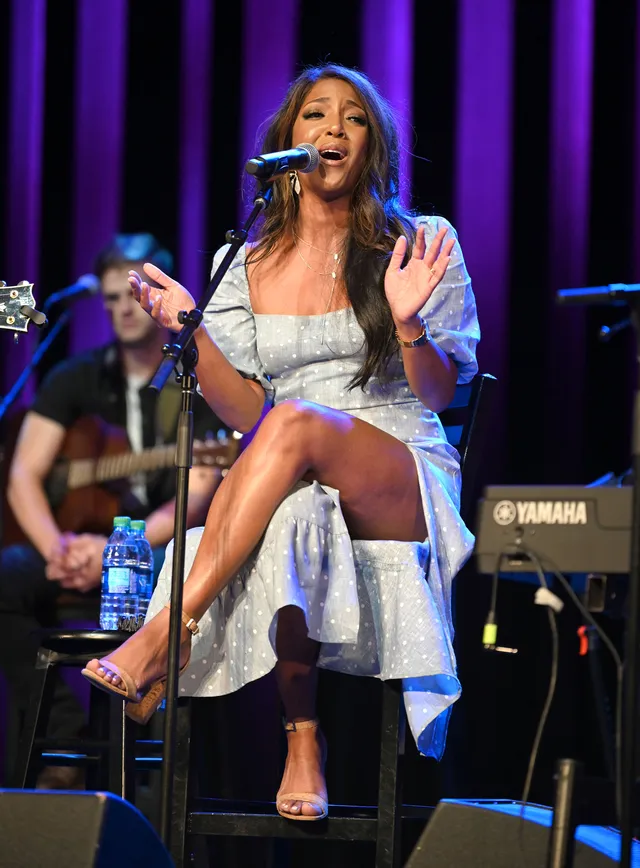
One of the few African-American voices in country music, Guyton has recently written two powerful songs tackling sexism in the industry. The heartbreaking ballad “What Are You Gonna Tell Her?” dropped just in time for 2020's International Women's Day and considering it came just days after Elizabeth Warren dropped out of the Democratic presidential race, one line was especially timely: "Do you just let her pretend / that she could be the president / would it help us get there any faster?" In June 2019, she released the uplifting "Sister," which included the lyric, "Sister, you're gonna hurt but you ain't gotta hurt alone."
"I don’t really have the words to express how I’m truly feeling. This song came from the very depths of my heart. Every word is all of our story," the Texas native wrote on Instagram on March 6, the day her latest single was released. "Thank you @emmadashlee @karenkosowski @victoriabanksmusic for going there and pouring out your hearts with me and creating a song that represents so many. I hope this song touches your heart like it did ours as we wrote it. I’m back y’all. ✊??."
Jennifer Nettles
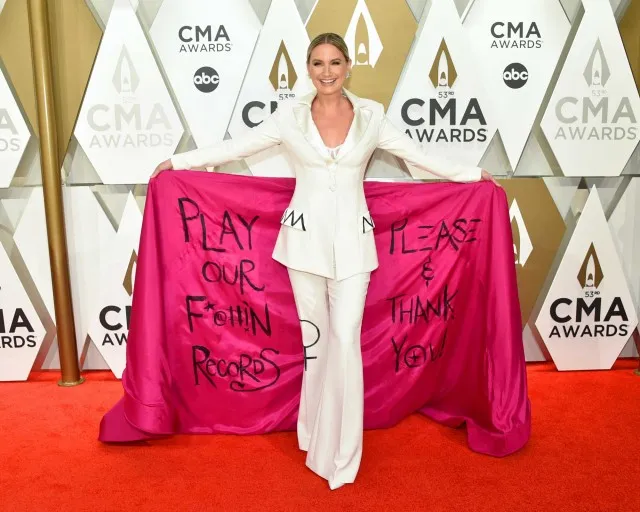
Equal play! The Sugarland frontwoman is not one to mince words. She wore her heart on her cape at the 53rd Annual CMA Awards, proudly showing off pink fabric emblazoned with the words "Play Our F*@#iN Records Please & Thank You" in handwritten letters. Even the white Christian Siriano jumpsuit she wore to the November 2019 awards show featured the symbol for female on the right pant leg. The ceremony, hosted by Carrie Underwood, Reba McEntire and Dolly Parton, celebrated the legacy of women in country music and, for the first time in history, women were nominated in every category for the event except Male Vocalist of the Year.
"When I heard that the CMAs were going to be celebrating women this year, I thought, what a fantastic opportunity and invitation to take the conversation beyond the applause," Nettles told ET on the awards show red carpet. "To take it beyond this night of celebration and to send a message to the rest of the industry that says women are supremely underrepresented and people want to hear our music and our records played on country radio and on country playlists just as equally."
Karen Fairchild
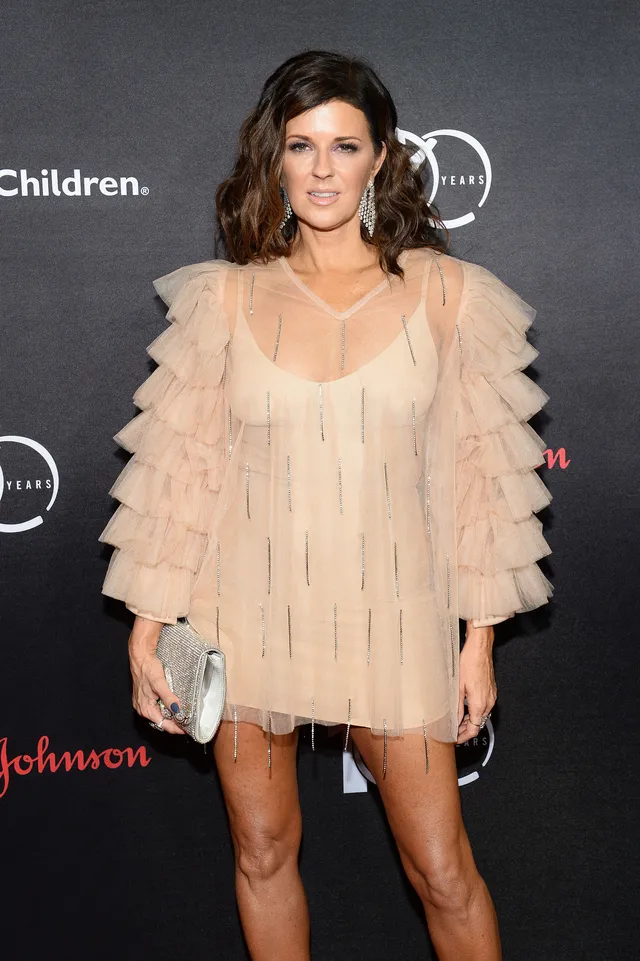
In 2019, Little Big Town released the song "The Daughters." Co-written by bandmate Fairchild, the tune asks for some equality for women who've had to take a step back to let men shine, especially in middle America. The chorus is especially poignant, featuring the lyrics, "Dream for everyone, but not yourself / I've heard of God the Son and God the Father / I'm still looking for a God for the daughters."
Kacey Musgraves
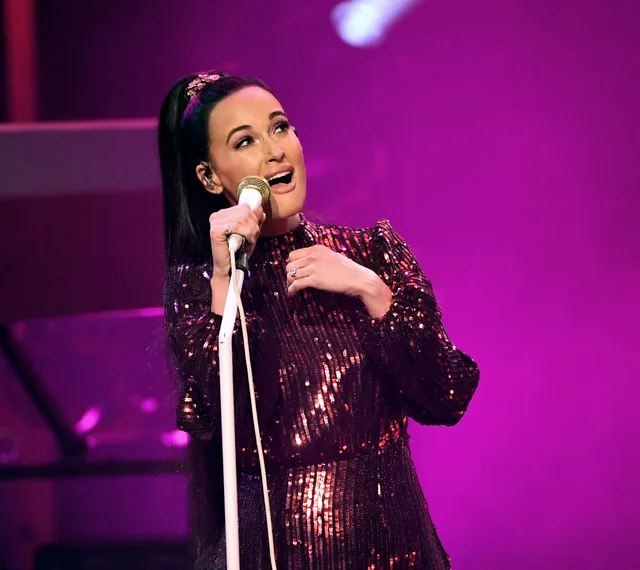
The GRAMMY winner is writing some of the most progressive country music lyrics out there right now, although she may see it as just dissecting life. Regardless, Musgraves is very aware of the lack of fellow female voices out there for country music fans, once telling Elle that on a road trip with her husband, she heard 35 references to a woman's body and only two female singers over a couple of hours. But while accepting the Innovator Award at the Billboard Women in Music event in 2018, she spoke positively about doing things her way while supporting the power of women. "Innovator to me means having the courage to take risks knowing that it could completely fail and doing it anyway," Musgraves said during her acceptance speech. "I know that the female perspective is so important... I feel really hopeful and really proud of the state of the modern woman: her bravery, her unapologetic celebrations of rights, body and mind, her art. And definitely, most of all, her unabashed realness, and I've been craving realness for so long."
Miranda Lambert
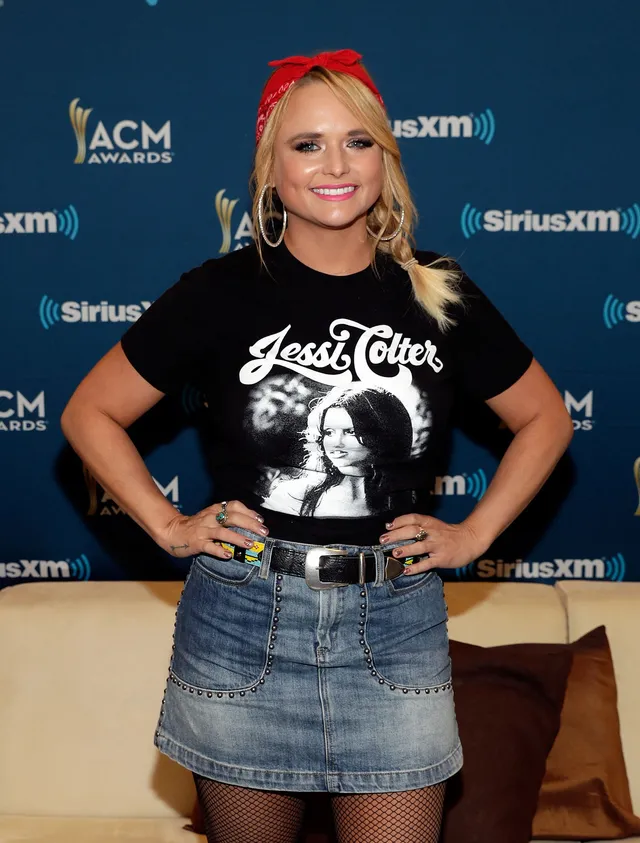
Back in 2015, the "Vice" singer mused to ET about the resurgence of strong women in country music after years of male-dominated radio. "I think it's really only boys a lot right now because there are so many great guys artists out right now, but there are some females coming up that I love and that I'm so proud of," she explained. "There's so many great female artists on the way up and I feel like it's just one of those phases -- sometimes it's the guys, sometimes it's the girls. But we'll take over eventually like we always do."
Carrie Underwood
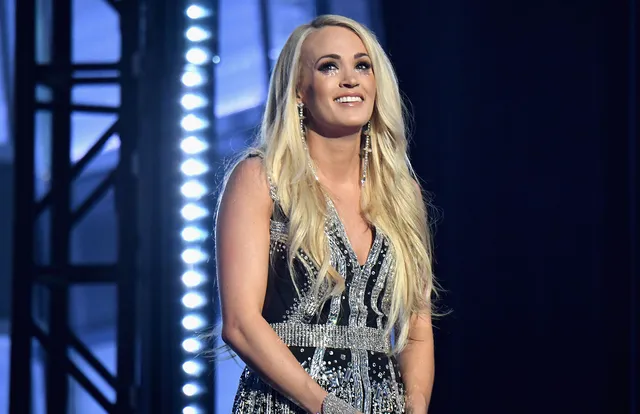
After winning American Idol, Underwood went on to become one of the best-selling country artists of all time -- not female singer but singer, period. Nonetheless, she's still wildly aware of the huge gap between genders in her genre. “I think it’s really great that there’s fan advocacy and social media support around women in country music, because there are so many incredible female artists who, for some reason, are not being given a chance,” she told Elle last fall. “We are told time and time again that the women listeners who make up the majority of country music radio listeners don’t want to hear other women on the radio, which I think is not true. Growing up, it was incredibly important to hear strong, amazing, talented women on the radio. It let me know that I could do that, too.”
Shania Twain
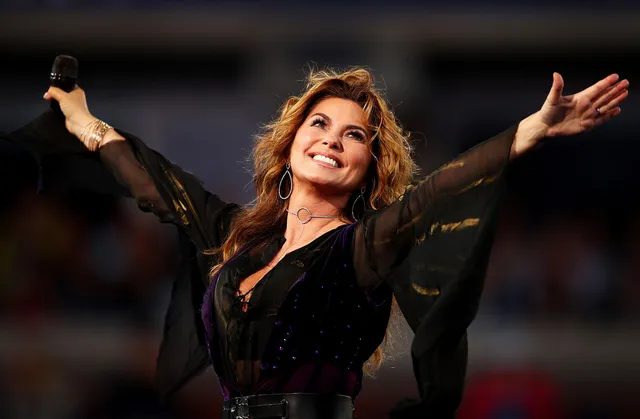
Considering one of her biggest hits is called "Man! I Feel Like a Woman," it's no surprise that the Canadian crooner has plenty to say about that single's place in the feminist lexicon. "There was such a sassy, feminist spirit to the song. Feminism has evolved so much since then -- it has been 20 years since that song was on the charts!" Twain said of her '90s hit in an interview with MacLean's in 2017. "You know, the perception of feminism back then was really different. It is shocking that I had to keep repeating myself to people and say stuff like 'just because you’re feminist or even if you don’t consider yourself a feminist or you’re just a strong woman, it doesn’t make you angry' or ‘You don’t have to be resentful to believe in equality.’ Some people still didn’t get it. They thought I was anti-men. It felt a little too ahead of the curve in some ways. I think it could be released today and easily fit in with the times."
Brandi Carlile
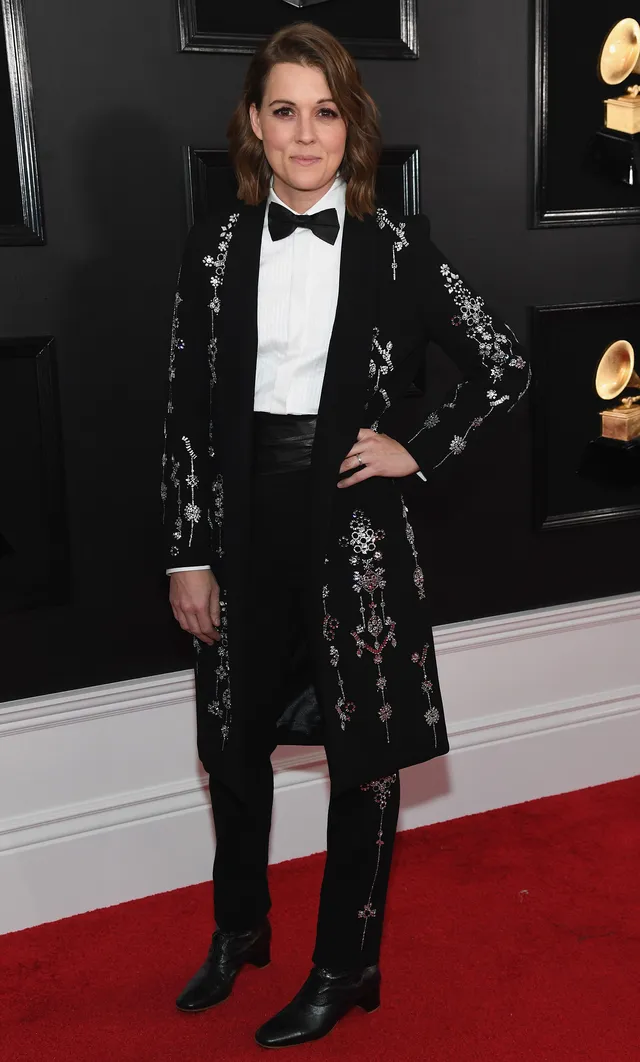
To celebrate International Women’s Day on March 8, Maren Morris interviewed the GRAMMY winner for Apple Music's Beats 1. They discussed what it means to be a woman in country music in 2019, with Carlile explaining that female singers need to support one another and "stand shoulder to shoulder and pull other women up behind us -- don't let that door close quietly" in the music industry. "There's a wave of this unity coming, and it's coming from the women that are your age, actually. They're kind of leading the way on it. I see it coming, I see it happening, and I find it really exciting. And I notice you have the spirit of collaboration in you," the GRAMMY winner told Morris. "You're not worried to stand next to somebody that looks different than you or somebody that's more famous than you or less famous than you or maybe on an exact equal platform. You don't see other women as competition. I've always had that same tendency, and I actually thought it was because I was gay, but you're clearly not gay, and you have this spirit of collaboration in you that's really unique and it commands leadership."
The "Girl" singer responded in kind and elaborated on Carlile's kind words, saying, "I get sad when I think about the women that can't stand beside another woman that's having a bigger moment or is a bigger star at the time and they feel so threatened. And the thought of there being so few spaces, limited, and that we have to be this dog eat dog kind of society, especially without gender, is just so untrue and so unfounded at this point."
Maren Morris
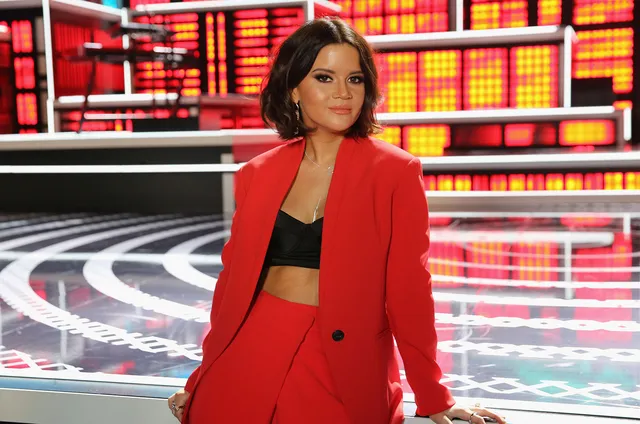
The "I Could Use a Love Song" singer has been outspoken in her own right in many of her solo interviews, which Carlile pointed out when the two chatted. In fact, Morris spoke at length to Billboard last year about the strength of women. "Obviously, I am a huge backer of the Time’s Up movement. I feel fortunate that in my own life I have not had huge problems," she told the outlet. "But don’t get me wrong, I have certainly had my own share of struggles over the years. You see stuff in the music industry, too, and I think what is coming out of all these conversations is that it’s making people double-check themselves. That’s a good thing. I was emotional watching the [2018] Golden Globes and cried when Oprah spoke so eloquently.”
Morris also doesn't mind stirring up a real conversation on social media, whether her followers support her feminist stance or not. "I am hoping that by stating a clear, strong message on social media that we’re not taking this kind of stuff anymore, it will be seen by women and that it would encourage them to take charge when it happens to them," she added. "Basically, I try to live by the Golden Rule and treat people respectfully. I’m just really over the way some people have no problem acting disrespectful and shaming women.”
Cam
The "Diane" singer isn't afraid of the word "feminist" -- or the "twisted" blowback that it can elicit. Proudly outspoken about women's issues -- particularly on her Instagram page, where she regularly shares messages of empowerment with her followers -- last year, she told told ET's Sophie Schillaci, "For me, that is not angry, that's not anything except saying I just want to empower women to feel like equals, and I want to inspire men to treat us like equals. I still get people that comment, 'I don't need feminism, it didn't do anything for me. I'm my own individual.' Yes, there are a lot of things that we have and privileges that we're enjoying right now, especially white women. It's easy to think everything's fine. For a lot of women, that's not the case. Also, if you forget where you came from, that's a really slippery slope to have it move backwards."
Lauren Alaina
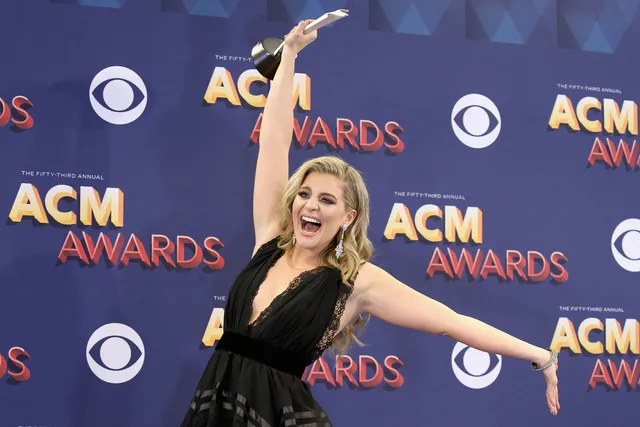
She recently realized an ode to the gals who've come before her with "Ladies in the '90s," and Alaina is all about loving both yourself and all other women. It's a hard-won lesson for the singer, who suffered from an eating disorder while competing on American Idol in 2011. "Especially now, with social media, where you see these women who have been Photoshopped -- I, unfortunately, am one of the women who have been Photoshopped, and I'm like, no, let's not do this -- it tricks everyone else into thinking you have to look this certain way, and no one actually looks like that and if they do, they probably need to eat a cheeseburger, they're probably just sad," she told Refinery29 during the 2018 CMA Fest. We have to learn to love our bodies, no matter what size, shape that is. Some people are perfect as a 0, some people are perfect as a 14."
Lindsay Ell
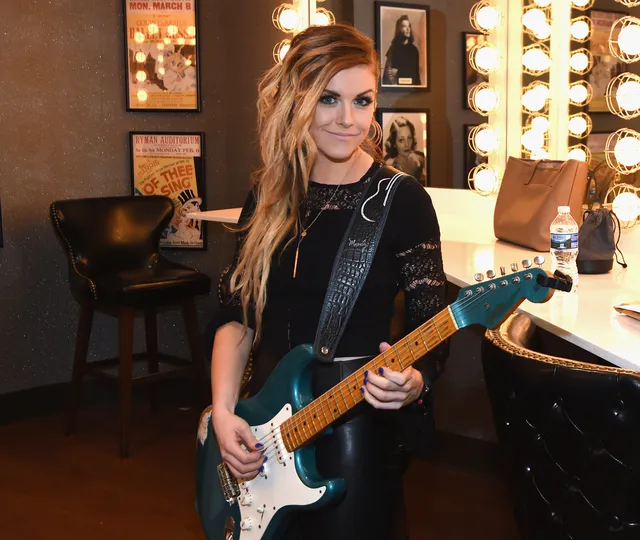
The "What Happens in a Small Town" singer more than talks the talk -- she wears feminism on her sleeve and then some, even selling "GRL PWR" hats at all her live shows. She hopes to be a leading force in getting more girls in music. "There's so many talented female musicians and artists in Nashville right now, which I'm so happy that I can help spotlight some of them on my record... as well as being a female musician, it always surprises me why there aren't more females playing instruments, especially leading bands playing instruments, and even if you look cross-format, there's not a lot of women playing lead instruments," she told radio.com in 2017. "And so, I'm happy that I can help lead that movement and be like girls can play guitar too or play whatever instrument you want to play. It's just been inspiring to be able to hear some fans be like, 'Lindsay, I am starting to learn guitar because of you. And the fact that Shania [Twain] and Sheryl [Crow] and Bonnie [Raitt] were such inspirations and role models to me when I was a little girl and the fact that I can forward that on is just surreal."
Natalie Maines
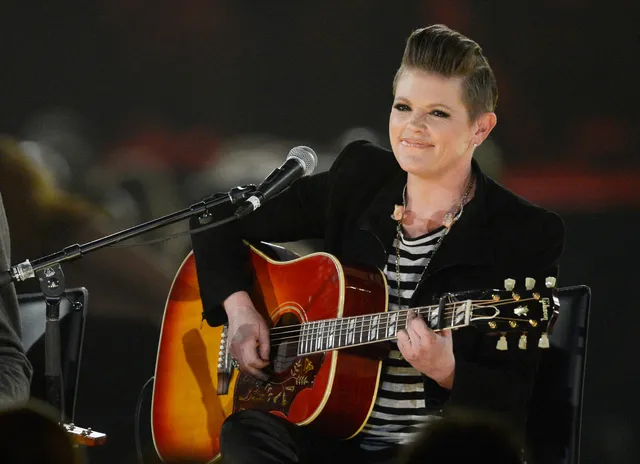
The former Dixie Chicks singer has admitted that outspokenness is in her blood, but even she was surprised by how much backlash the group got after she spoke out in 2003 against then-president George W. Bush and the Iraq War. The group was shunned by Nashville but eventually came back to win four GRAMMYs in 2007, including one for their answer to all the controversy, "Not Ready to Make Nice." Though Maines has since distanced herself from the genre, when she released her solo album, Mother, in 2013, she admitted to Rolling Stone that she was shocked by the Bush controversy but won't stop speaking up for the marginalized or about taboo topics. "I always thought they accepted us in spite of the fact that we were different,” she told the mag. “It shocked me and kind of grossed me out that people thought I would be a conservative right-winger, that I’d be a redneck. But at that time, people didn’t ask us things like, ‘What do you think of gay marriage?’ If they had, they would have learned how liberal I was. But I was so confused by who people thought I was and what I had been putting out there... There was a part of me that was like, ‘Oh, this isn’t OK? F**k that.’ I didn’t know the cat was in the bag, but it felt so good that the cat was out of the bag. Then I definitely just went, ‘Oh, really? You don’t like that? Well, how about this? Not only do I not like this president, I love gay people! And I’m pro-legalization of marijuana and all drugs! Yeah, let me blow your mind.'”
Dolly Parton
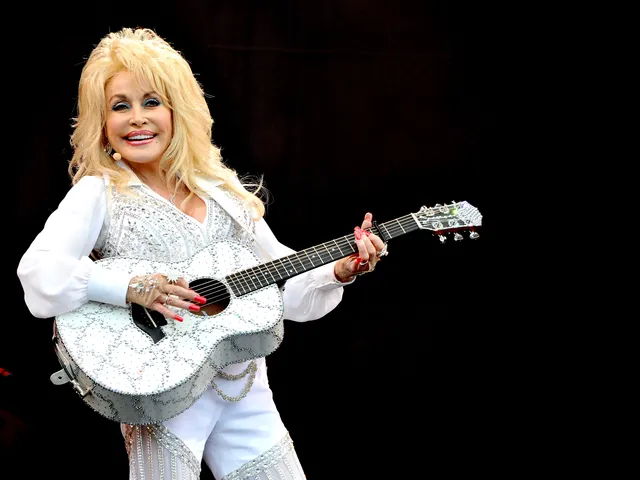
Though she's said in the past that she doesn't necessarily consider herself a feminist, the music icon has helped many of her peers as well as her millions of fans around the world feel empowered. She's brashly herself, and tweets like this help explain why she's so respected and beloved: "I'm not going to limit myself just because people won't accept the fact that I can do something else."
Maddie & Tae
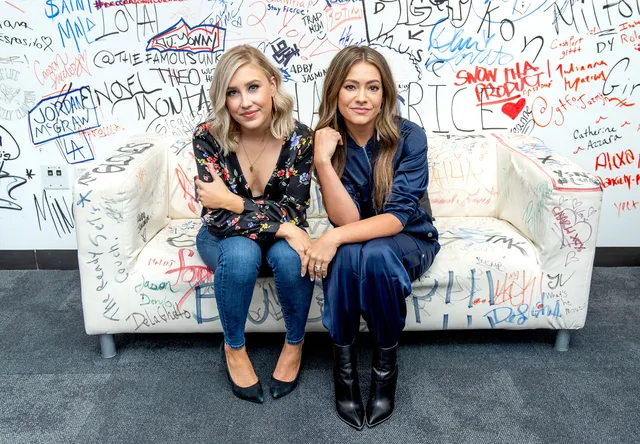
The duo received some criticism in the country world for calling out some of the tropes in male singers' tunes with their 2014 hit, "Girl in a Country Song," but they told Vulture they never received hate mail from other artists, nor were they specifically calling out bro-country artists. Rather, they were saying they didn't fit the "hot" girl stereotype that was often being sung about. "Actually, Tae and I are completely comfortable with being labeled as feminists because feminism actually means someone who believes in equality for men and women," Maddie explained to the outlet when asked if they thought it was strange that the word "feminist" was attached to their music. "For some reason there’s a stigma with feminism, saying, 'Oh, we hate men.' But it’s not that. It’s not that at all. It’s just saying, 'Hey, women deserve the opportunities that men have, and vice versa. Men deserve the opportunities that women have.' We’re totally comfortable with saying that, and speaking out for women and men. At the end of the day, we’re just trying to give people a voice."
Kalie Shorr
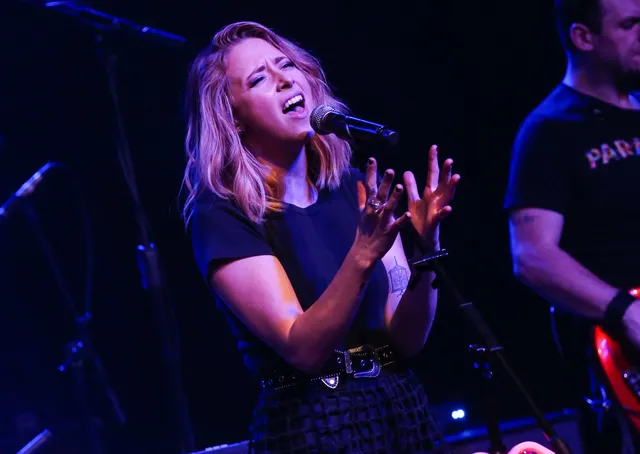
The "Fight Like a Girl" singer has been very outspoken about the fight for equality, especially in country music. "All our songs are about boys. I love boys -- I'm a huge fan, do not get me wrong," Shorr told Taste of Country in 2017. "It's the same misconception with feminism that it's saying women are better than men. And no, it's saying that we should be equal to men, and I think that's such a fair statement." Despite occasionally receiving hateful comments about standing up for what she believes in, Shorr is adamant about finding a way forward for women. "I'm proud to be outspoken about it," she added. "I've gotten some nasty comments from people who think I'm just a bra-burning feminist, but it's something I'm overwhelmingly proud to be even when there's negative stuff involved too."
RaeLynn
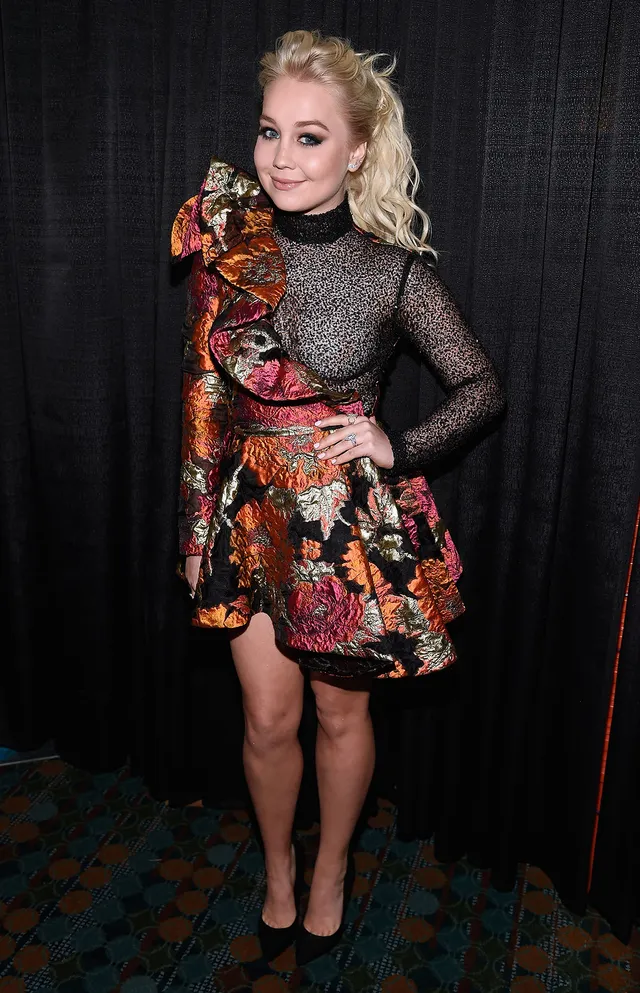
Though she received some backlash for her hit, "God Made Girls," which some saw as anti-feminist, RaeLynn is soundly in the camp of supporting other women. "Me as a woman, I am the biggest fan of any woman that's in country music," she told Refinery29. "I respect each and every one of them for what they do, and I hope they respect me, and I'm just honored to be in this genre in general."
Ashley Monroe
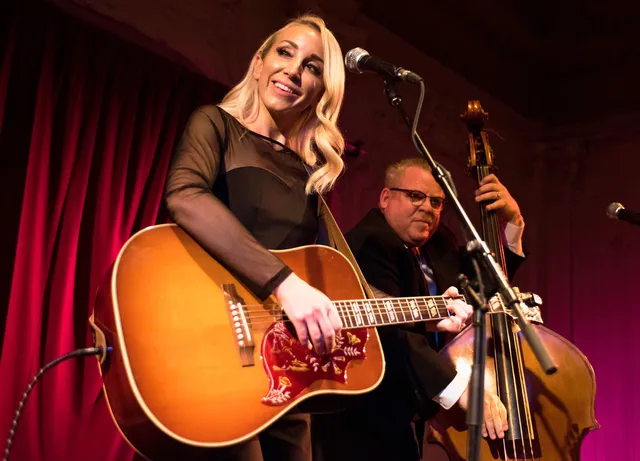
One-third of Pistol Annies and a powerhouse songwriter in her own right, Monroe has never shied away from intensely personal lyrics and unabashed female empowerment, though she did explain to Kurrent Music in 2017 that she doesn't feel obligated to write feminist music but rather dig deep into true, sometimes difficult stories. "I feel like it’s my duty to show women it’s okay to talk about things that would normally make other people uncomfortable. Myself or the Annies didn’t set out and say, 'Let’s write songs about hating men' or that women are better," she explained of her girl group, which includes Miranda Lambert. "We never did it intentionally. But I lost my dad when I was 13, and me and my mom took care of ourselves and saw a lot of life. I’ve seen a lot of life, and I can do a lot of things that men can do, so I’m sure somewhere down rooted in me, I root for my girls, because I know it can be a little bit hard on us. But again, we just write about what we know. I think it’s really important for a woman to hear real stories, like I said, that would normally make people uncomfortable to talk about, like a dollar short and two weeks late or 'A Housewife’s Prayer,' the Annies, [Kacey Musgraves'] ‘Merry Go Round.' All those songs where women are sitting at home saying, 'Oh my gosh, I’m not alone, people can relate to me.' I write more for that than saying I’m a feminist or that I’m on this big campaign to stir up stuff. I’m not that smart! I just write about what I know, is all."
Jillian Jacqueline
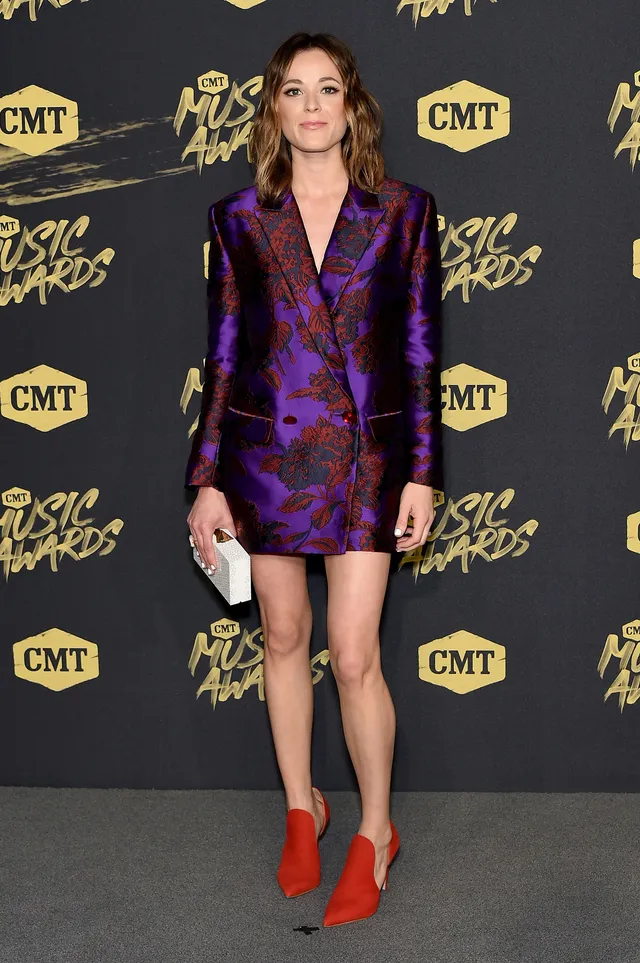
The "God Bless This Mess" singer wants every woman to feel empowered -- even if that means thinking like a dude. Sort of. "One of my favorite quotes from a friend of mine, and I think I sort of misconstrued it, but the gist was like, 'Walk into the room like a man,'" she told Refinery29 last year. "Basically, with confidence because sometimes as women we walk in and we're a little meek and we have to walk in like owning our power and claiming our space." In the same interview, Jacqueline also shared her hope that country music will take more chances on women, both in "hiring them and just letting them own that space."
